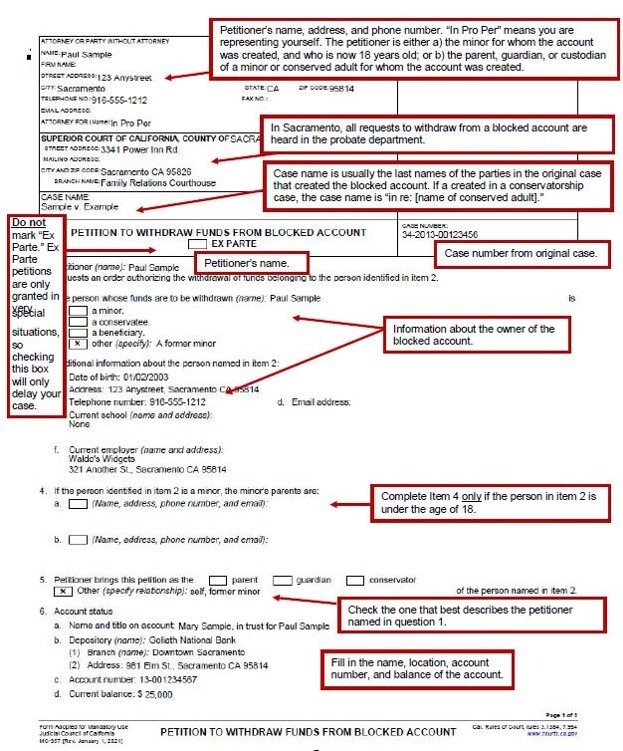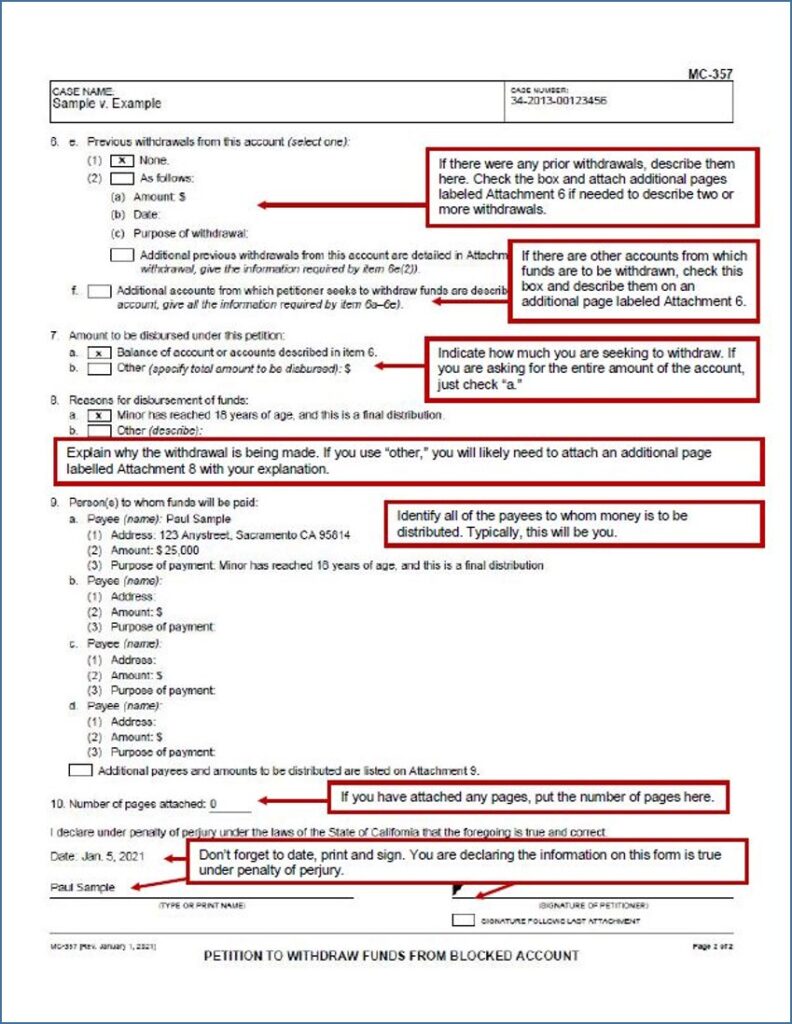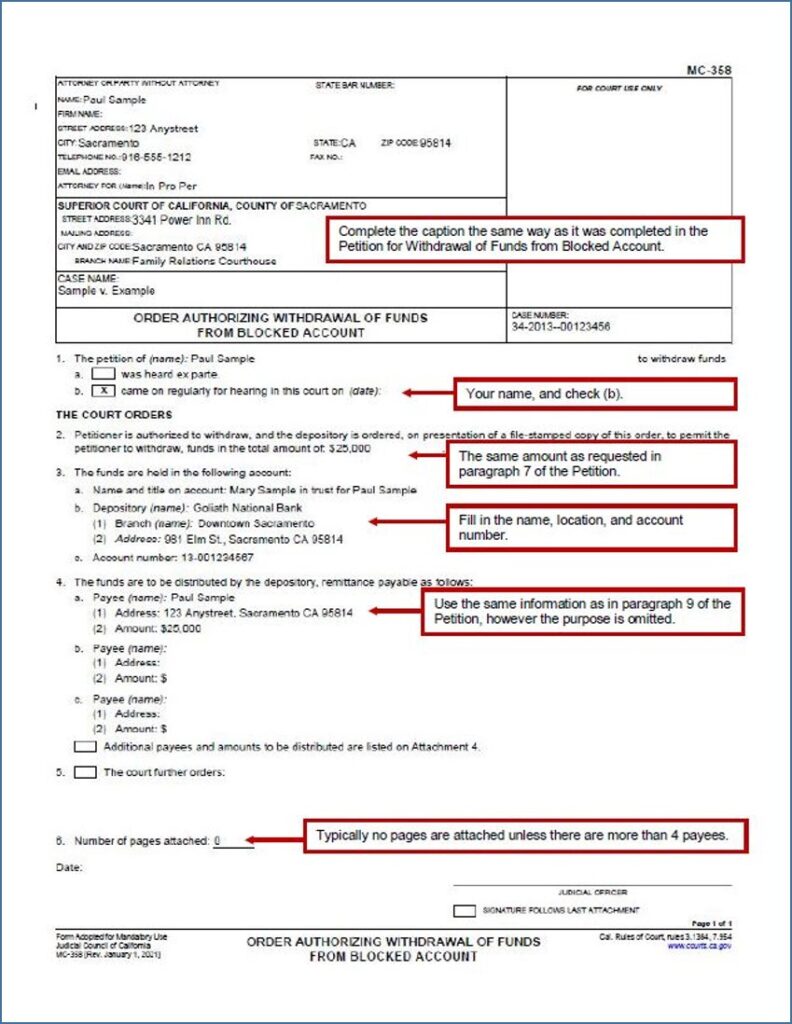- The name and title in which the account is held
- The name of the bank or other institution holding the account
- The name and address of the bank branch holding the account
- The account number
- The current balance of the account;
Complete the Necessary Forms
Instructions for completing the necessary forms are included at the end of this packet. You will need at least two forms to request a withdrawal from a blocked account:
- Petition for Withdrawal of Funds from Blocked Account (MC-357)
- Order for Withdrawal of Funds from Blocked Account (MC-358)
These two forms are generally sufficient if the account was created for a minor who is now 18 years old. In other situations, you will need to provide the court with substantial evidence about the necessity of the withdrawal, and how the best interests of the child or conserved adult will be served by the withdrawal. This explanation will likely be very lengthy, and will not fit in the small space on this form. You may attach additional page(s) to your petition, using either:
- Additional Page (MC-020)
- Attachment to Judicial Council Form (MC-025)
Copying and Assembling the Court Papers
Make three copies each of the Petition with attachments and the Order.
Staple each copy of the Petition for Withdrawal of Funds from Blocked Account (MC-357), including attachments. Leave the original Petition and Order unstapled so they can be scanned by the court.
File Your Documents
In Sacramento County, Petitions for the Withdrawal of Funds from Blocked Accounts are filed in and processed by the Probate Department, located on the second floor of the William R. Ridgeway Family Relations Courthouse at 3341 Power Inn Road, Room 214, Sacramento, CA 95826.
Be sure to file your documents with the Probate Clerk on the second floor of the Courthouse, as the Family Law Clerks on the first floor may not recognize your form.
As of the date of this Guide there is a $60 filing fee, unless your fees were waived. Current fees are available on the Sacramento County Superior Court’s website.
You may file a fee waiver request with the court if your income is below certain amounts or if you receive certain government benefits. For more information, see our Step-by-Step guide on Fee Waivers.
Attend the Hearing
The Court will schedule a court date for your hearing when you file your papers. At that hearing, the Court will either grant or deny your request to withdraw funds, or may issue other orders, depending on the exact circumstances of your case. If you are filing in a county other than Sacramento, please be sure to check with your particular court and its local rules to see if there are any additional procedural steps that should be completed prior to your hearing.
For Help
SH@LL (Self-Help at the Law Library) (formerly Civil Self Help Center)
609 9 th Street, Sacramento CA 95814
(916) 476-2731 (Appointment Request Line)
Services Provided: SH@LL provides general information and basic assistance to self-represented litigants on a variety of civil legal issues, including name changes. All assistance is provided by telephone. Visit “What we can help with” for a list of qualifying cases.
Eligibility: Must be a Sacramento County resident or have a qualifying case in the Sacramento County Superior Court.
Samples
Petition to Withdraw Funds from Blocked Account


Order to Withdraw Funds from Blocked Account

This material is intended as general information only. Your case may have factors requiring different procedures or forms. The information and instructions are provided for use in the Sacramento County Superior Court. Please keep in mind that each court may have different requirements. If you need further assistance consult a lawyer.